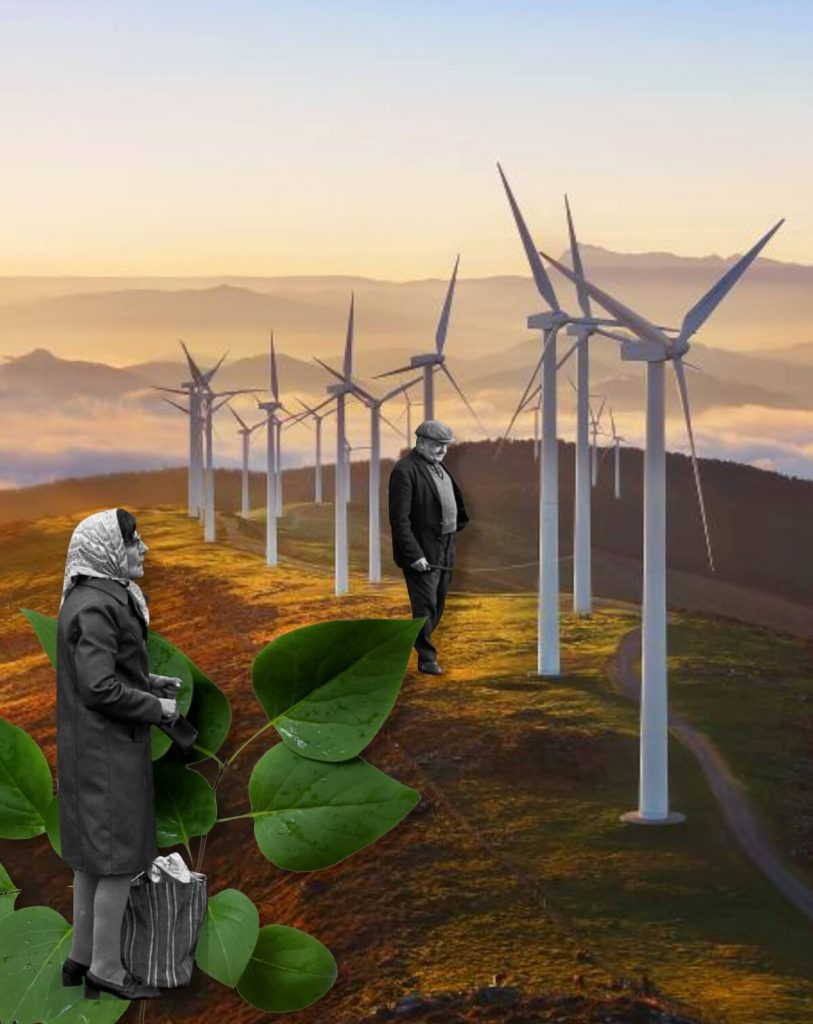The summer of 2022 saw the mercury rising to record heights, as the topic of conversations turned once again to the problem of climate change. This was a particularly recurrent discussion with my group of friends – one that has been persistently bobbing up every few months over the years. The reactions – for when it comes to solutions there were none – were also not very innovative, and we may often hear that “It is pointless to have children in these circumstances”, “if this goes on like this, humankind will perish”, or “why won’t someone do something”. This conversation in the sweltering room is repeated all over Europe. People are gazing at their sweating navels, crying for solutions, but seldom offering any. They feel their plea is falling on deaf ears. However, it is not the case.
Politicians and decision makers are eagerly listening to such fears. They are also anxious to offer help. Whether this help is, in fact, helpful or not is another matter. Populists play into the deepest fears of people – exploiting them and offering illusory solutions. Meanwhile, populism is on the rise in Europe, because populists listen. They pay attention to the masses suffering climate anxiety – a growing problem in itself. Instead of solving issues, populist create more problems so that they can be seen as the ones who are protecting people from these.
Download full article: 08-MÁTÉ HAJBA DEAL OR NO DEAL POSSIBLE HURDLES FOR THE EUROPEAN GREEN DEAL
It is painfully clear that one of the key priorities of the European Union (EU) is, undoubtedly, to tackle the issue of climate change. However, climate policies can be easily hijacked by populists offering unrealizable solutions and impossible outcomes. This is just one of the many hurdles standing in the way of the European Green Deal.
In order to be successful, caution must be taken to stay on point and not to be side-tracked by populist or feel-good policies or get trapped in echo chambers, while at the same time prepare for future challenges and innovations as well as factor in a multidisciplinary approach – involving global, regional, and local politics, science, trade, economics, and psychology. Furthermore, it is important to implement and communicate the proposed policies in a way that will bring results while not alienating people. Let us, therefore, focus on the possible hurdles, examine them, look at various examples and best practices, and of course, offer solutions.
The European Green Deal is a dramatic challenge for an unhealthy European economy. Let us hope we will remember the EU and the Green Deal as a torchbearer in many fields – such as sustainability, energy, research and innovation, trade, and not as overambitious desire to be first at any cost.
There are (and will be) some challenges, and policymakers must take heed not to stumble on the hurdles in the way. Only then can the Green Deal be a victory for all. It is time for the sweltering rooms to turn into cool areas where people lift their gaze up from their navels, look each other in the eyes, and start talking about realizing a livable future.
Dream of a “Green and Pleasant Land”
Ever since the dawn of time, humankind has been dreaming of both living in growing comfort and in harmony with nature. William Blake contrasts the wish to find heaven in “England’s green and pleasant land” to the “dark satanic mills” of the industrial revolution, according to the popular interpretation. Art, history, and philosophy are awash with a primordial will to live in peace with nature. Yet, environmentalism in the true sense did not get any considerable traction until recently, and progress was slow.
The problem is far from being solved. Despite public support and enacted green policies, more efforts are needed. Policies are often not ambitious enough, or their net effects are more harmful than beneficial. In all the zeal to protect the environment, it is not enough to take action to soothe our conscience. The difficult part is that the right action must be taken. The European Green Deal has been criticized a lot, yet it provides a historic opportunity. However, its implementation lacks details, and as such, the policy needs to be honed to be effective.
Thus, the EU’s policy greatly depends on European citizens, as well as the decision makers.



